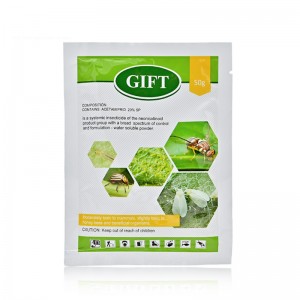A systemic insecticide is a chemical that is absorbed by the plant and conducted throughout the plant’s body. Unlike non-systemic insecticides, systemic insecticides don’t just act on the surface of the spray, but are transported through the roots, stems, and leaves of the plant, thus creating a defense barrier throughout the plant.
How Systemic Insecticides Work
Systemic insecticides are absorbed through the plant’s root system and subsequently transported through the plant’s vascular system to all parts of the plant. Insects that ingest plant tissues containing insecticides are rapidly poisoned and die. This conductive property of systemic insecticides makes them effective against pests that are hidden inside the plant or hard to reach on the plant surface.
Onset of action of systemic insecticides
The onset of action of systemic insecticides depends on a number of factors, including the type of plant, environmental conditions, and the formulation of the insecticide. Generally, systemic insecticides become effective within a few hours to days after application, and insects die quickly after ingestion.
Persistence time of systemic insecticides
The duration of a systemic insecticide’s effect in the plant is also affected by a number of factors. Typically, the effects of systemic insecticides last from a few weeks to a few months, which means that the plant can continue to fight off pest infestations during this time, reducing the need for repeated spraying.
How to apply systemic insecticides
Systemic insecticides are applied in a variety of ways, including soil applications, foliar sprays and trunk injections. Below are a few common application methods:
Soil application: a solution of insecticide is poured into the soil around the roots of the plant, and the plant absorbs the insecticide through its root system.
Foliar spraying: Insecticide solution is sprayed on the plant leaves and the insecticide is absorbed through the leaves.
Trunk injection: Insecticides are injected directly into the trunk of the tree so that they are rapidly conducted throughout the plant.
Best Systemic Insecticide Recommendations
With a wide range of systemic insecticides available on the market, it is vital to choose the best product for your specific needs. Here are a few highly effective systemic insecticides:
Imidacloprid: a broad-spectrum insecticide that is suitable for a wide range of crops and can effectively control aphids, whiteflies and other pests.
Acetamiprid: potent insecticide for aphids, whiteflies, etc. It is suitable for fruits, vegetables and ornamental plants.
Thiamethoxam: Highly efficient and low toxicity, applicable to a wide range of crops, can protect plants from pests for a long time.
Use of systemic insecticides on vegetables
Although systemic insecticides are widely used on crops, they need to be used with extra caution on vegetables. Because systemic insecticides are absorbed by the plant, an adequate safety interval needs to be allowed before harvest to ensure the safety of the produce.
Effects of systemic insecticides on bees
Systemic insecticides may be harmful to pollinating insects such as bees. To protect bees, it is recommended to avoid the use of systemic insecticides during the flowering period and to choose other insecticides with low or no toxicity to bees.
Can systemic insecticides kill spider mites
Some systemic insecticides are effective against spider mites, but not all products have this effect. If needed, we will recommend free insecticides that will effectively control spider mites.
Are non-systemic insecticides safer
Non-systemic insecticides act only on the sprayed surface and usually degrade faster in the environment, so they may be safer than systemic insecticides in some cases. However, non-systemic insecticides require frequent applications and are difficult to use for complete control of pests that hide inside the plant.
Post time: Jun-07-2024










